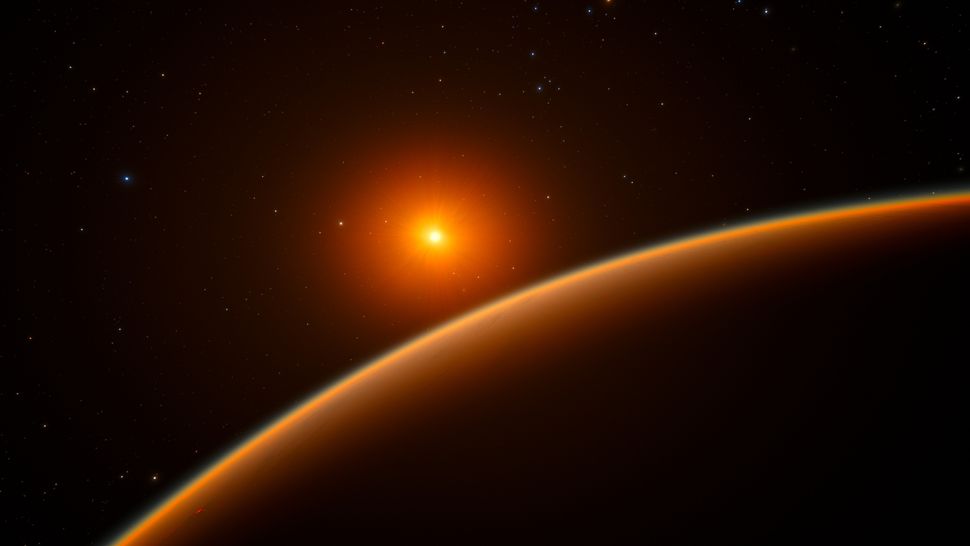Nearby exoplanet may be rich in life-giving water, study finds
By Tereza Pultarova published about 11 hours ago
'If it's confirmed in the future, that would be the first indirect detection of liquid water on an exoplanet.

An artist's illustration of the limb of a brownish exoplanet, with its small orange host star in the background.
An artist's impression of the potentially habitable exoplanet LHS 1140b. (Image credit: ESO/spaceengine.org)
An exoplanet orbiting a small star some 50 light-years away from Earth may be a life-friendly water world, a new study has revealed — and the James Webb Space Telescope could determine if that is indeed the case.
The planet in question, called LHS 1140b, orbits in the habitable zone of a small, dim star called LHS 1140 that lies in the constellation Cetus. The exoplanet was discovered in 2017 and has been observed by multiple telescopes since.
These observations first convinced researchers that LHS 1140b is a rocky planet about 1.7 times wider than Earth. But a new analysis of all available observations has shown that LHS 1140b is not dense enough to be purely rocky and must either contain much more water than Earth or possess an extensive atmosphere full of light elements such as hydrogen and helium.
Researchers can't yet tell which of the two options is correct, but the James Webb Space Telescope (JWST) might be able to find out in the coming years. If LHS 1140b is a water world, then the planet is set to become the number one target in the search for life outside our solar system.
More:
https://www.space.com/exoplanet-lhs-1140b-habitable-zone-water
